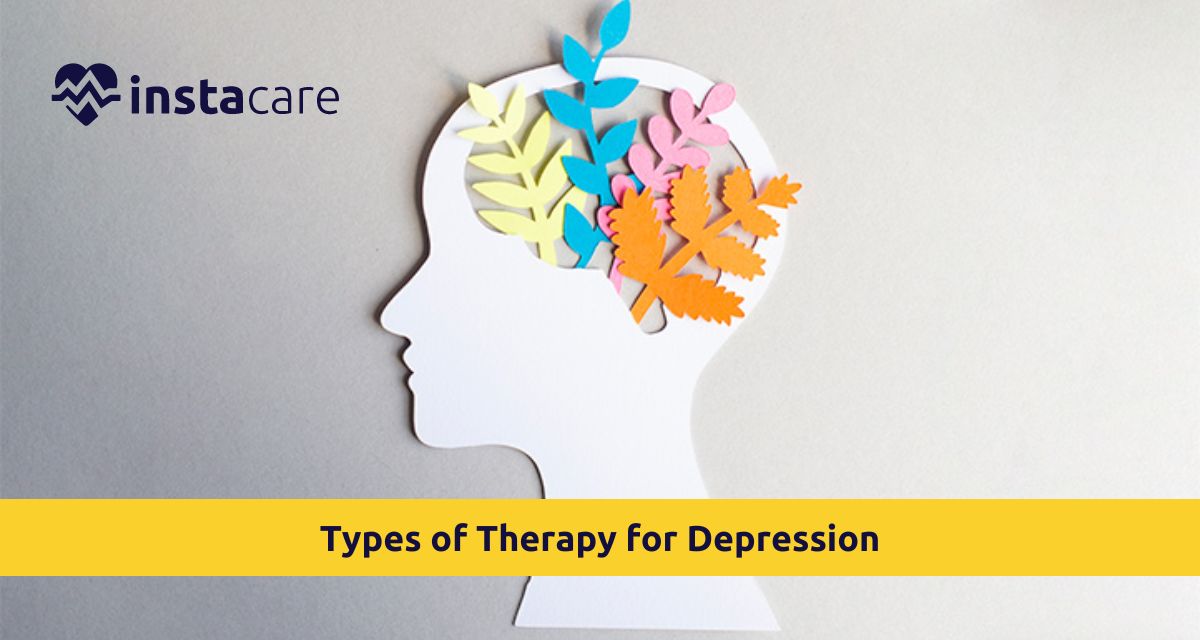Among the most common psychiatric disorders that exist today, depression is one that affects millions across diverse cultures and backgrounds. Depression indeed refers not merely to persistent sad feelings but also to a more complex combination of emotional and cognitive symptoms and physiological ones that can altogether severely affect the day-to-day activity of an individual.
Fortunately, there exists a wide array of therapeutic
techniques that can help people better cope with and eventually overcome
depression. This post will delve into the kinds of treatments that exist for
depression, how they work, and effectiveness, so you may make a choice for
yourself based upon what you need to do.
What is Depression?
Only then can several therapy options be examined in the
light of knowing what depression is. Depression is not that kind of problem
typically characterized by a usual sadness or being "down in the
dumps." It is a serious mental health condition that is characterized more
by a state of hopelessness and helplessness feeling for years and a dwindled
interest in activities once found to be sources of joy.
Common symptoms are:
- Constant
Sadness
- Loss of
interest or pleasure in activities that one used to enjoy.
- Weight
loss or gain
- Sleeping
Pattern Changes
- Feeling
of tiredness
- Failing
to concentrate
- Recurring
thoughts of worthlessness
- Thoughts
of suicide or death.
Due to the different symptoms, numerous therapies may be
undertaken based on individual needs and situations.
Types Depression Therapy
1. Cognitive Behavioral Therapy (CBT)
Cognitive Behavioral Therapy is one among the most practiced
and studied therapies concerning anxiety. It specifies identification and also
modification of destructive thoughts and behaviors that cause anxiety.
- How it
works: A patient in CBT is encouraged to discover distorted patterns of
thinking that cause the anxiety. The patient uses his critical thinking ability
to dispute and challenge distorted thoughts with more realistic balanced ones.
- Efficacy:
Many studies have proven the efficacy of CBT in treating several types of
anxiety disorders. It remains the measure of comparison for therapy and adds an
empirical dimension to helping clients control their symptoms.
2. Interpersonal Therapy IPT
Interpersonal Therapy (IPT) is based on improving
interpersonal relationships and social functioning, which greatly influences
mood and emotional well-being.
- IPT enables the patient to pinpoint and resolve
interpersonal problems: either conflicts in relations or transitional issues,
like a conflict occurring within the relationship, the adjustment to a new
role, or any form of loss. There might be a lessening of depressive symptoms
following improved communication, especially when conflicts have been broken.
- Effectiveness: IPT has been proved to be an effective
treatment for depression if it seems that interpersonal relationships are a
source of significant stress. Complemented often with more focused treatments,
IPT is now used as a cure because it produces results.
3. Psychodynamic Therapy
Psychodynamic therapy is founded on the hypothesis that
behavior and emotions are influenced by unconscious thought and feelings. It
helps in better understanding oneself and finding out unwanted behavioral
patterns through healthier ways of coping. The discourses normally happen by
focusing on childhood experiences, contacts, and emotional reactions.
- Effectiveness: Although psychodynamic therapy may take
longer to deliver desired outcomes, it is effective for those who need to
understand the root cause of their depression. Some studies assert that it can
bring lasting changes in the condition of a patient and emotional wellness.
4. Mindfulness-Based Cognitive Therapy (MBCT)
Mindfulness therapies are the use of mindfulness practice in
treatment. These therapies are intended to help a person attend better to the
present time and to stop judging his thoughts and feelings.
- How It Works: In many cases, mindfulness-based therapies
incorporated the practice of meditation and breathing that were utilized to
help one notice his thoughts with less emotional response to those thoughts.
This intervention is believed to decrease levels of ruminating thinking and
increase relaxation as the anxiolytic effect.
5- Dialectical Behavior Therapy
This has emerged as an intervention designed precisely for
borderline personality disorder. Ever since, DBT has been developed for a whole
range of mental disorders, including depression.
- How it works: DBT is based on skills training in four
domains: emotional regulation, distress tolerance, interpersonal effectiveness,
and mindfulness. Thus, this method assumes that a complete approach toward the
management of intense emotions subsequently reduces symptoms of depression.
6. Acceptance and Commitment Therapy
ACT is the process of acceptance of thoughts and emotions
and not controlling or avoiding it. Individuals commit themselves to
value-based action
- How it Works: ACT motivates individuals to get into
psychological flexibility by accepting thought and emotion without judgment.
Psychological flexibility allows the individual to actively engage in
activities of meaning in spite of presence with depressive symptomatology.
- Effectiveness: ACT has been effective in depression and
overall well-being. It builds up resilience and makes individuals live life
according to their values.
7. Group Therapy
Group therapy is provided when a counselor guides a few
people who share some common experiences, such as depression. The format in group
therapy would be interesting and allows people to share and learn from others.
In group therapy, people can share their feelings and
experiences as they give each other feedback that is supportive and
encouraging. During this group experience, loneliness and a feeling of
isolation are reduced.
- Effectiveness: Group therapy can provide supplemental
support to individual therapy by adding social support alongside strategies for
managing their feelings. It has been useful and effective in enhancing emotional
recovery and reducing symptoms of depression.
Selecting a Suitable Therapy for Depression
The best depression therapy is a choice that depends on many
factors:
Severity of Symptoms
The level of severity in depressive symptoms determines some
treatment choices. For example, people experiencing somewhat minor to moderate
levels of depressive symptoms would find treatment through CBT or IPT useful,
while severe cases would sometimes call for a combination of therapies and
medication.
Expertise of the Therapist
Look for the expertise of the therapist in specific
therapeutic approaches. A therapist who specializes in your chosen method will
give you more effective treatment and appropriate strategies for you.
Goals for Therapy
Knowing exactly what you want to get out of therapy will
help guide your choice. More specifically, if you are concerned with improving
relationships, IPT would likely be the most useful for you.
Tailoring
Sometimes, using an integration of therapies may be the best
answer for one case. For instance, combining CBT with mindfulness might provide
even greater strength and control over emotions.
Conclusion
Depression is a rather complex mental health disorder, that needing some very thoughtful and individualized approaches to treatment. Thankfully, there are more than enough avenues to bring relief for the sufferer to lead his or her life better.
Cognitive Behavioral Therapy; Interpersonal
Therapy; Psychodynamic Therapy; Mindfulness-Based Cognitive Therapy;
Dialectical Behavior Therapy; Acceptance and Commitment Therapy; Group
Therapy all these therapies have served as helpful avenues for recovery.
Ultimately, the appropriate nature of therapy for depression will depend on a
variety of factors: the level of symptoms; preferences; and what is to be
accomplished by therapy.
Please book an appointment with the best Psychologist in Lahore, Karachi, Islamabad, and all major cities of Pakistan through InstaCare, or call our helpline at 03171777509 to find a verified doctor for your disease.












